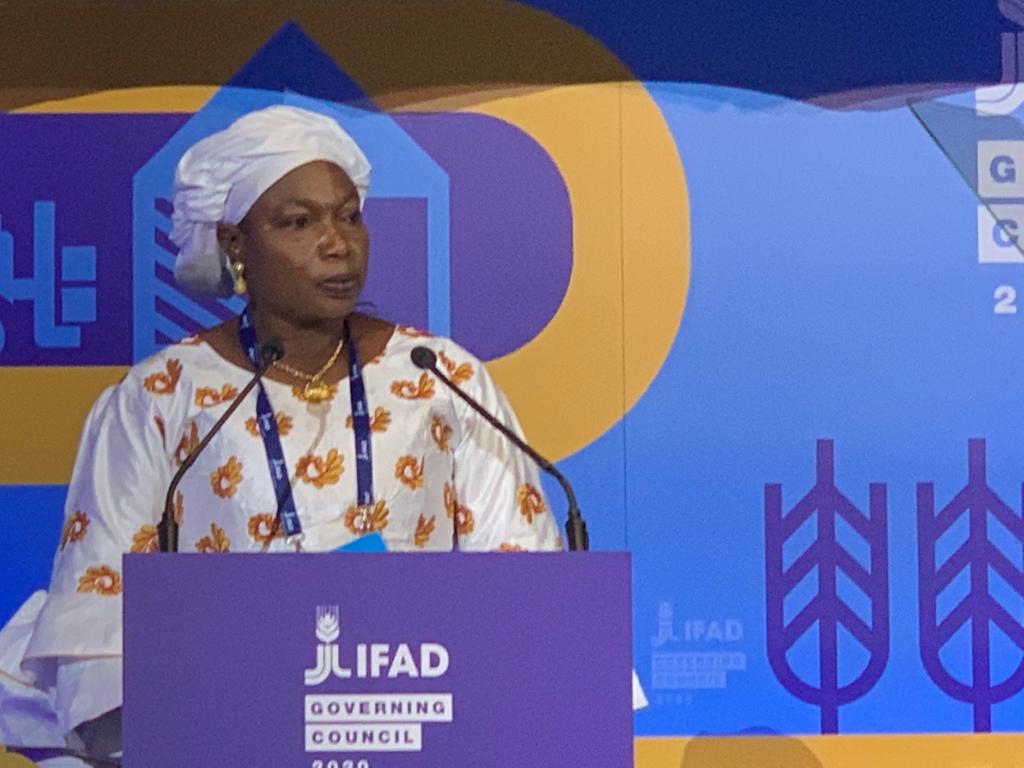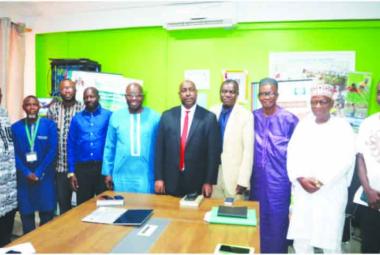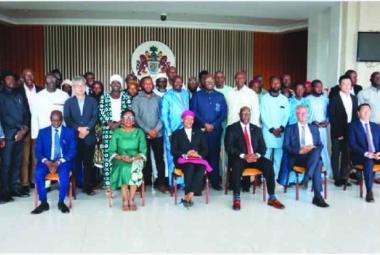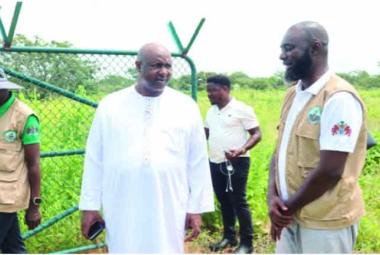The Minister of Agriculture, Amie Fabureh recently travelled to Rome, Italy, to attend the 43rd session of the Governing Council of the International Fund for Agricultural Development (IFAD). She was accompanied to the high level meeting by the Permanent Secretary Momodou Mbye Jabang.
Addressing the Governing Council Madam Fabureh asserted Gambia under the leadership of President Adama Barrow has identified two key factors to enhance the agriculture sector and these are: the need to build climate change resilience into all agricultural development initiatives and a clear and pronounced desire to rebuild political and economic relations. “There is an ongoing new process to sustainably manage land, water resources and ecosystems, build the resilience of smallholders against climate change, push towards mechanization of agriculture, and the emergence and transformation of agri-food value chains for employment creation especially for youth and women,” she disclosed.
Minister Fabureh explained that poverty in Gambia is mostly concentrated in rural areas largely characterized by fragile ecosystems. She said areas along the Gambia River are endowed with natural resources but constantly degraded and lack appropriate infrastructure and public services. These areas according to the Minister are inhabited by food insecure communities, malnourished children, women and young people that are mostly vulnerable to climate change. These challenges, she said, are amplified by weak public institutions and private service operators, high population growth, low agricultural productivity, and limited access to resources.
Giving general overview of IFAD operation in The Gambia, Minister Fabureh further explained that the new Country Strategic Opportunities Programme (COSOP) (2019-2025) contains one six-year USD 80.0 million project financed through the IFAD 11 & 12 funding cycles financing envelope and co-financing. She said the Resilience of Organizations for Transformative Smallholder Agriculture Project (ROOTS) will scale up achievements by National Agricultural Land and Water Management Development Project (NEMA), while building synergies with other partners’ work geared towards increasing climate change resilience and value-chain development.
The Minister further indicated that the approach would be based on: Consolidation of NEMA's investments; sustained investments and support to women organization, youth producers and farmers’ organizations; supporting value chain interaction platforms to enable Public-Private Producers’ Partnerships (4Ps); Increased access to financing for agriculture value chain; mainstreaming environmental, climate, gender and nutrition in the interventions.
IFAD is an international financial institution and a UN specialised agency based in Rome. It invests in rural people by empowering them to reduce poverty and increase food security. It is estimated that IFAD has provided over US$22.4 billion in grants.
By Modou Kanteh
Information Officer
MoA






